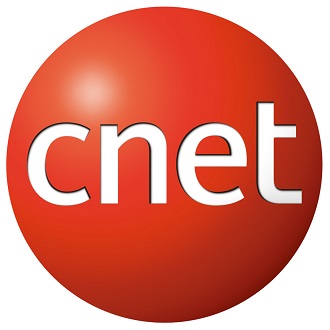Microsoft has operating system patents; Linux has none
 This post was also published in CNET News.The uproar in the open-source community over Microsoft's embrace of Novell says a lot.
This post was also published in CNET News.The uproar in the open-source community over Microsoft's embrace of Novell says a lot.It reveals that many open-source backers fundamentally don't understand the software business. When vendors compete, customers win. This is good.
Contrary to the numerous rants in the open-source community, the recent deal between Microsoft and Novell--in which the companies have agreed to interoperability, reselling and patent protection--is actually an excellent business deal and a good thing for the open-source community.
Microsoft is growing up after its antitrust issues. It is actually listening to its customers. Chief information officers have been telling Microsoft for years that they are sick of interoperability issues and that Microsoft has to stop acting like a big baby and learn to play well with others. The good news here is that Linux is now woven into the business fabric of every major company.
The reality of the technology business is that virtually every deal between big companies includes bilateral patent protection. Company A cross-licenses its patents with Company B. Neither acknowledges that the other is ripping off any intellectual property. Rather, each now has a finger on a legal atomic football that threatens to blow up both businesses if either goes to court to litigate for some bogus market advantage.
What usually keeps these companies from suing each other over patents is this legal notion of mutually assured destruction, since each company has patent libraries that overlap the other's cash cow products. When these companies do deals with each other, it is standard operating procedure to codify this presumptive way of doing business into the agreement--hence bilateral patent protection.
Microsoft's first deal in this new era of cooperation was with Sun Microsystems. Sun dropped its antitrust complaint (accepting a $2 billion check from Microsoft as part of the deal), and the companies pledged interoperability between their products. This deal quite naturally also included bilateral patent protection between Microsoft and Sun.
It did not, however, cover open-source developers. So let's say you download an open-source project like the NetBeans tool from Sun, add some cool features and redistribute your version of the tool. You have now violated hundreds of Microsoft patents on tools, and they can come after you.
It should be of no surprise to anyone that Microsoft holds numerous patents that Linux violates--it's just that polite company in the software industry won't say this aloud. You see, Microsoft hired folks like Dave Cutler out of DEC to build Windows NT, and it is actually an industrial-class operating system.
It originally included things like HAL (the hardware abstraction layer) that let it run on multiple processors including the PowerPC. I'm not a lawyer, and I'm not claiming that Linux violates any specific multiple-processor patent for Microsoft, but the odds are pretty much 100 percent that a good attorney from Redmond could build many different infringement cases that could go a long way in our court system.
In the Novell and Microsoft deal, many industry insiders are whining about commercial implementations, but I don't know what people expect Microsoft to do. Should they indemnify everyone who downloads and extends the Linux kernel from Novell from all of its patents?
If they did that, Red Hat could start getting the Linux kernel from Novell, be indemnified from all Microsoft operating-system patents and then sue Microsoft for the relatively few operating-system patents it has. Many of the whiners overlook what is significant about this deal. For the first time, one of these patent agreements also covers individual open-source developers.
A lot of people are saying Novell is paying "royalties" to Microsoft. Microsoft is paying Novell $108 million for Novell's patents, and Novell is paying Microsoft $40 million for Microsoft's patents. Or if you can do simple math, Microsoft is paying Novell $68 million for the patent agreement and then hundreds of millions more for Novell Suse Linux licenses and marketing expenses. Novell definitely came out on top here.
While the devil will be in the details, this deal is a good thing, and Red Hat should also do a similar deal with Microsoft. The interoperability commitment and bilateral patent protection is a good thing for customers that run Linux and Windows (every large technology customer). The patent protection is a good thing for open-source developers that extend the open-source projects covered under the agreements, since they now get more protection than they had before.
And I predict that this announcement has already forced every other major software company (BEA Systems, IBM, Oracle, SAP and others) to now consider similar deals to offer customers and developers some form of patent protection and indemnification. They have to do something, or the competitors that move first will take business away from them. Whether they announce these deals in public news conferences or offer similar protections quietly in the background to their customers, they'll have to do something.
Linux has won, and it's time to let the next phase begin. The days of kumbaya, where vendors are locked arm in arm singing open-source love songs to "grow the market" through co-opetition are over.
The software business is a ruthless business. Linux is now so important that technology vendors are fighting for competitive advantage over their peers. It's ugly. It's competition. And it's good for customers.